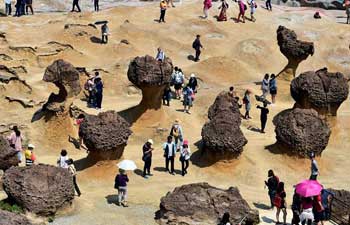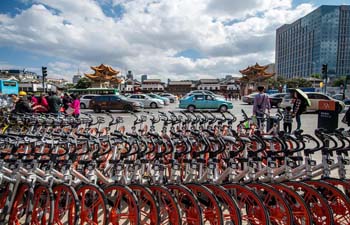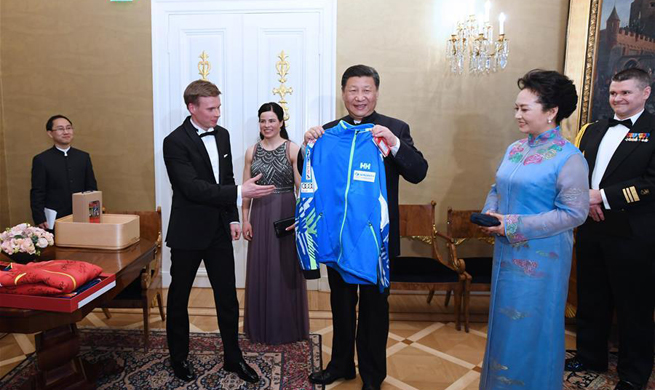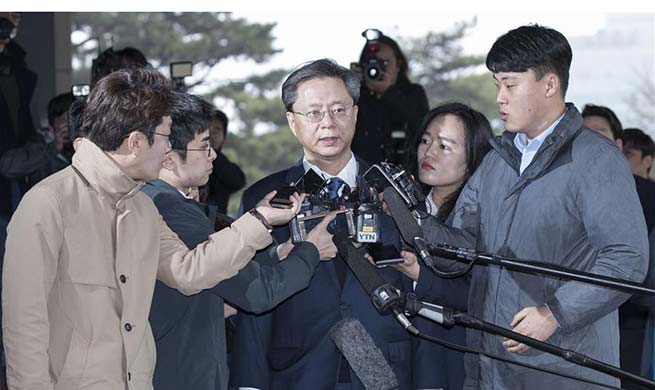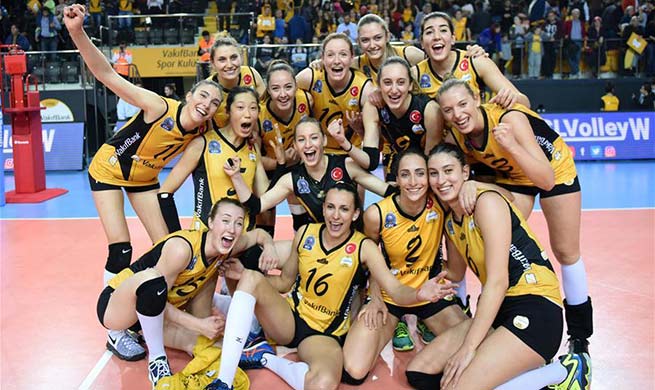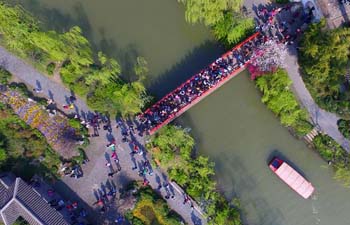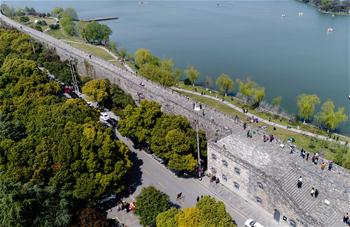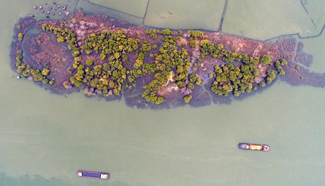SEOUL, April 6 (Xinhua) -- South Korean residents and civic group activists on Thursday filed a petition against the deployment of the U.S. Terminal High Altitude Area Defense (THAAD) missile defense system, which they depicted as unconstitutional.
Residents from Seongju county and Gimcheon city in southeast South Korea and peace activists gathered outside the constitutional court in central Seoul, holding a press conference before submitting the constitutional appeal.
According to the petition document, the residents and activists said the THAAD deployment violated many of the constitution clauses while failing to follow any appropriate procedures.
Seoul and Washington abruptly announced a decision in July last year to install one THAAD battery in the county by the end of this year. Just three days before the announcement, Defense Minister Han Min-koo told lawmakers that he hadn't been informed of any notice about the THAAD installation.
Foreign Minister Yun Byung-se visited a department store when the THAAD deployment decision was announced, indicating no advance discussions between ministers of defense and foreign affairs and the presidential office.
The petitioners said the decision-making process on THAAD was rough and ready as there was no approval in the cabinet meeting, and that it was unilaterally determined by the national security council of the presidential office.
"The THAAD decision did not follow any proper procedure. No effort has been made for dialogue with residents," said Ha Joo-hee, an attorney at Lawyers for a Democratic Society, an advocacy group composed of liberal lawyers.
The attorney at the petition said such an important decision that can influence the fate of the whole nation must have been made known beforehand to the public and the parliament, asking the court to make public upcoming hearings on the petition to let people know about what went wrong with the THAAD deployment.
The petitioners claimed the U.S. missile shield deployment in their territory is unconstitutional as it violates rights to peaceful life, health and environment, which the country's constitution guarantees.
THAAD's AN/TPY-2 radar is known to emit super microwave, detrimental to human body and environment. South Korea's defense ministry refused to disclose information on its hazardousness, boosting anxiety among residents.
There has been no public data available on the radar's powers, but available information suggested that the radar emits 81 kilowatts on average and 410 kilowatts at the peak based on 25,344 modules used in the X-band radar, according to the petition document.
The radar in South Korea will be deployed in the middle of a village, being exposed to hundreds of thousands of people. It would be in a stark contrast to radars installed in the United States and Japan facing the sea or desert.
The THAAD deployment site was changed in September last year into a Lotte-owned golf course at the Soseongri village in the northern part of the Seongju county bordering the Gimcheon city.
Lee Seok-ju, the head of the village, told reporters that the THAAD installation will damage peaceful life of people and violate basic rights of the constitution, vowing to fight against it to the end.
The petitioners said THAAD in South Korea prevents people from living a peaceful life as it boosts arms race and escalates tensions in Northeast Asia, describing the deployment as South Korea becoming part of the U.S. missile defense networking in the region.
Seoul's defense ministry claimed the U.S. missile shield is aimed to defend against nuclear and missile threat from the Democratic People's Republic of Korea (DPRK), but the petitioners said THAAD is incapable of shooting down DPRK missiles that fly at a low altitude and are delivered to major South Korean targets within minutes.
THAAD is designed to intercept incoming missiles at an altitude of 40-150 km. The DPRK has technology enough to avoid its intercepting range.
Regional countries, including China and Russia, have firmly opposed THAAD in South Korea as it breaks strategic balance and damages security interests of the two countries.
To eliminate the DPRK's nuclear and missile threats, the petitioners said, a peace regime should be established on the Korean Peninsula through dialogue and negotiations.
The residents and activists outside the court chanted "THAAD Out, Peace In," a famous slogan at the anti-THAAD rallies that had been held every night since the deployment decision was announced last July.






